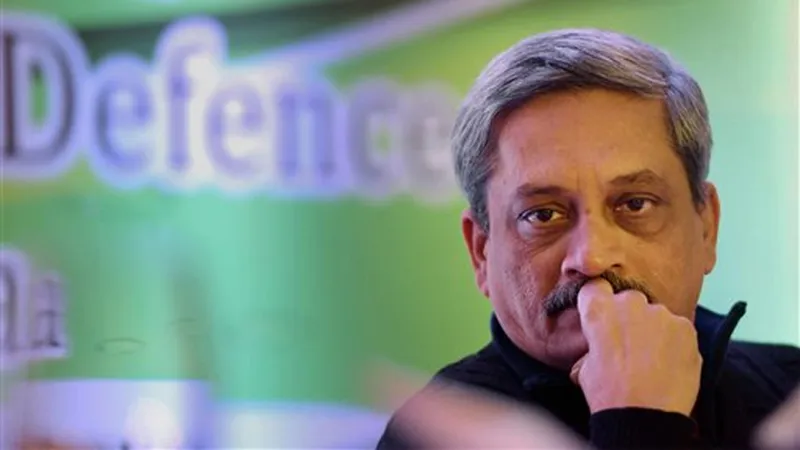As top defence leaders from across the Indo-Pacific meet this week at the annual Shangri La Dialogue in Singapore, the Indian defence minister will once again be conspicuous by his absence. Rising China's growing assertiveness and the uncertainties surrounding the American pivot to Asia have triggered an intensive interest in the region to expand defence engagement with New Delhi.
But the ministry of defence (MoD) seems as reluctant as ever to raise its regional security profile. Governments might come and go, but some things obviously don't change at the MoD. The tone of disinterest in Asian defence diplomacy, set by A.K. Antony during the UPA years, appears to continue under the Narendra Modi government.
South Block's reluctance to participate effectively in the Shangri La Dialogue stands in contrast to the growing importance of the forum. The deterioration of China's relations with the US and Japan and the mounting military tensions between China and its Southeast Asian neighbours, especially Vietnam and the Philippines, have resulted in an intensification of regional defence diplomacy. With few formal mechanisms for addressing security challenges in Asia, the Shangri La Dialogue has become a valuable forum for the exchange of ideas and informal interaction between senior defence policymakers.
During his eight long years at the MoD, Antony chose to speak at the Shangri La conference just once. Nor was there much certainty about who represents India. One year, it is the MoS for defence; it is the NSA or the chief of naval staff in others. In any case, the MoD does not decide until the very last minute on who might speak.
Last year, amid the regime change in Delhi, no one from the MoD showed up at the Shangri La Dialogue. For whatever reason, Defence Minister Manohar Parrikar has chosen to skip the forum. One wonders if the tall talk of "acting east" by PM Modi and External Affairs Minister Sushma Swaraj travels to the other end of South Block.
Expanding defence partnerships has become a dominant theme of foreign policy articulation by Modi and Swaraj. This has seen the renewal of the 10-year defence framework with the US, expanding the security partnerships in Asia with Japan, Mongolia, South Korea, Vietnam, Fiji and Australia. Modi and Swaraj have been more willing than the UPA to speak up on issues that animate Asia, especially the South China Sea, where Beijing, Hanoi and Manila are scrambling to secure their competing claims through land reclamation and expansion of military facilities. Last week, the Chinese navy challenged a US surveillance aircraft near the disputed Spratly Islands. A war of words between Beijing and Washington has ensued.
Modi has been forthright in affirming India's strategic stakes in the South China Sea. He has underlined the importance of China respecting the freedom of navigation in the disputed waters. The NDA government has also set a valuable example to Beijing by settling India's maritime territorial disputes with Bangladesh peacefully, in accordance with the principles of the UN Convention on the Law of the Seas.
Growing expectations in the region that the Modi government is ready to play a leadership role in securing a stable balance of power in Asia have also been reinforced by India's impressive evacuation of civilians from Yemen and its quick response to the Nepal earthquake. If India has a great story to offer Asia on security issues, Parrikar will not be there to tell it in Singapore.
In normal circumstances, the Shangri La Dialogue would be a standard date on the defence minister's annual calendar. He would be travelling there with senior officials for an intensive round of exchanges with key Asian states. But there is a big problem: the MoD has neither a policy commitment nor the institutional capability for defence diplomacy. If Modi does not change this, the shadow between Delhi's diplomatic talk and defence action will continue to grow darker.
(The writer is a distinguished fellow at the Observer Research Foundation)
Courtesy : (The Indian Express) 26 May, 2015
The views expressed above belong to the author(s). ORF research and analyses now available on Telegram! Click here to access our curated content — blogs, longforms and interviews.
